The extraordinary inventions ordinary people are making to fight coronavirus
Ingenuity in a time of crisis
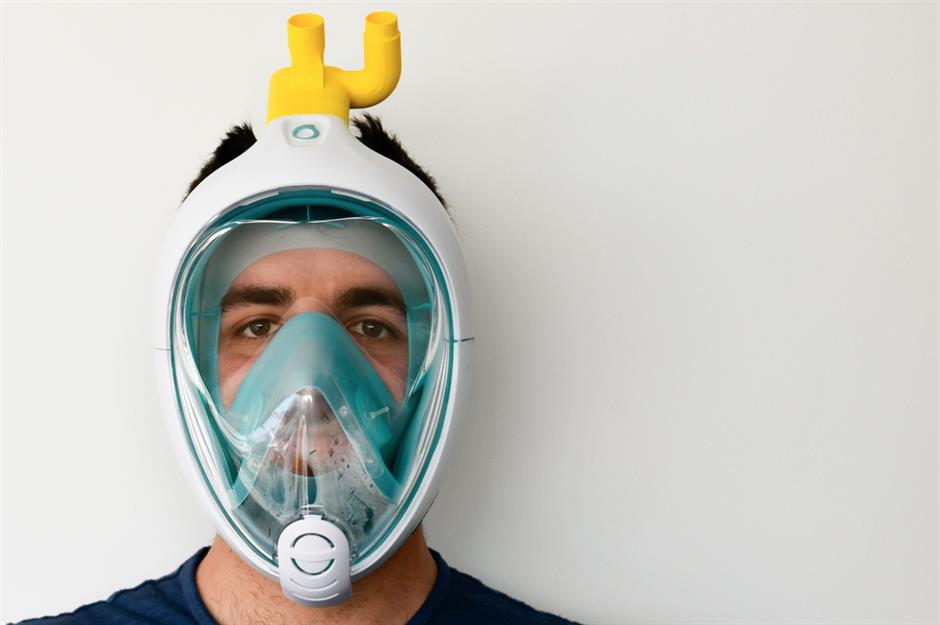
As the saying goes "necessity is the mother of invention", and never has this been more true than during the coronavirus pandemic. People from all walks of life have turned their hands to creating personal protective equipment (PPE) for medical and health care staff, building low-cost ventilators and launching initiatives to help improve people's mental health during lockdown. Click or scroll through to find out some of the extraordinary things made by ordinary people to help reduce the impact of Covid-19.
Covid Emergency Ventilator
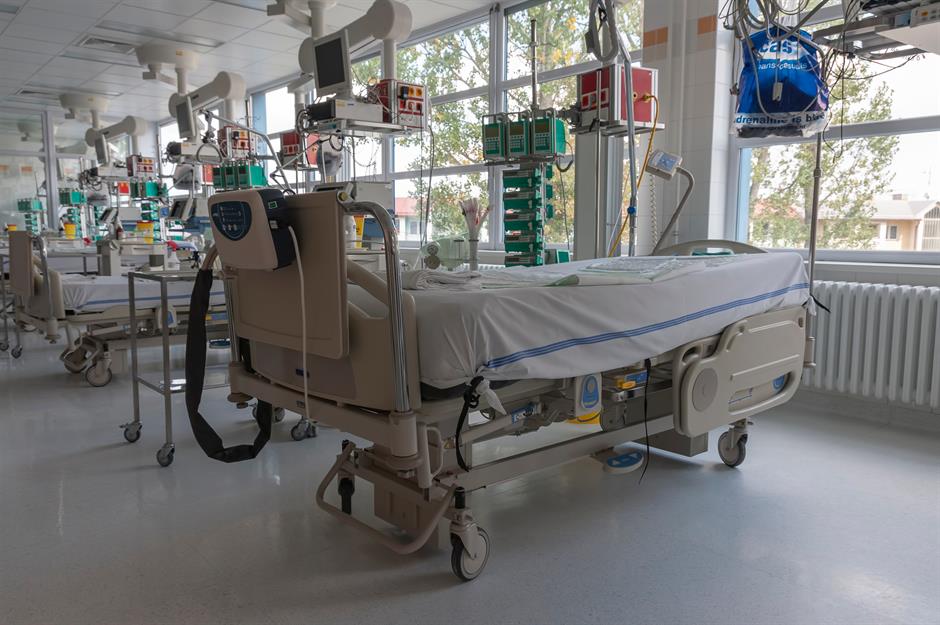
A consultant anaesthetist at Glangwili Hospital in Carmarthen, South Wales, was so "desperately concerned" about the lack of ventilators to treat Covid-19 patients that he went on to design his own. Dr Rhys Thomas, a former military medic, took advice from doctors in the hard-hit Italian region of Bergamo when developing the Covid Emergency Ventilator. The device can be used before patients require intensive care treatment, thereby freeing up hospital ventilators for the more seriously ill. At the end of March the Welsh Government gave the device the green light, with up to 100 being produced every day.
Virustatic Shield
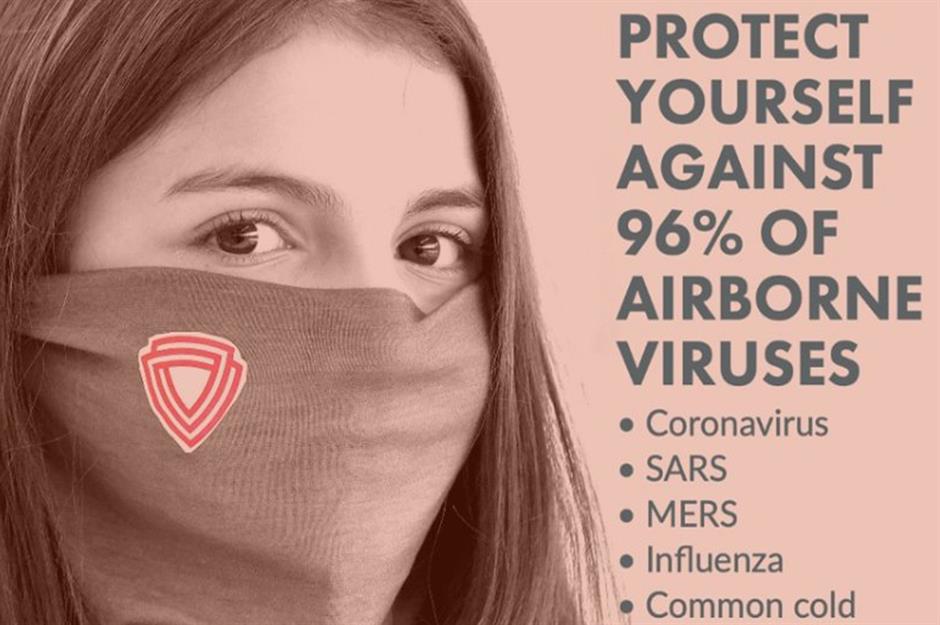
Sponsored Content
Face shield
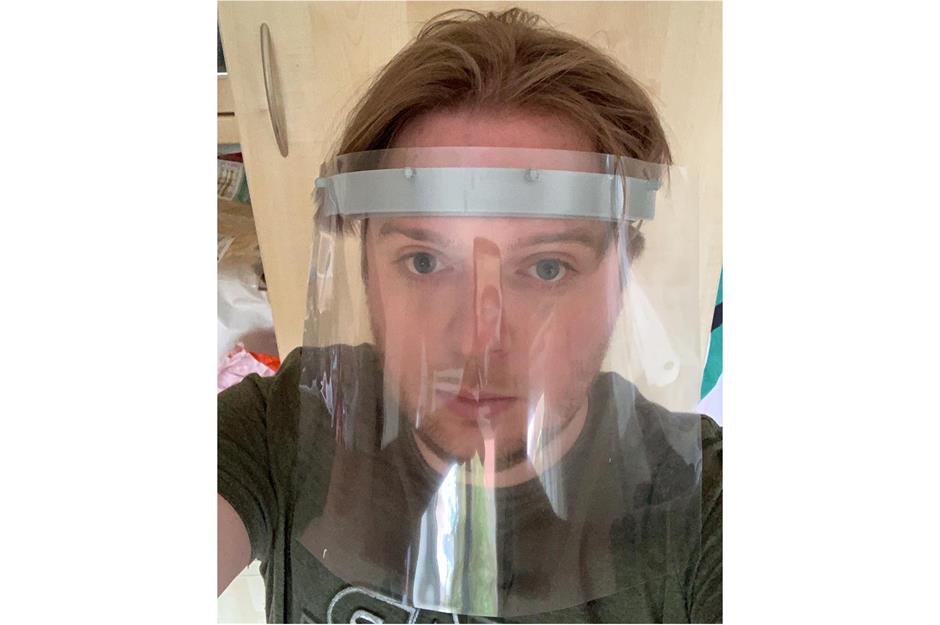
Self-employed 3D designer Aaron Shrive, of Market Harborough, England, has been working throughout the night to make PPE for medical and other health care staff during the coronavirus pandemic. To make the protective headgear, he uses his three 3D printers to print off the headbands, while laminator pouches are put through the machine to make the visor itself and knicker elastic is finally used to pull it all together, courtesy of a local lingerie maker. So far he's made more than 800.
Protective face shields
The design and technology department at Monkton Combe School in Bath, England is one of a number of education establishments helping a UK-wide effort to provide medical and support staff with PPE. The team is 3D printing protective masks, which have so far been distributed to local hospital staff, paramedics and other health care workers. Principal Chris Wheeler tweeted that it was "amazing" to see their hard work being put into action.
Ear guards
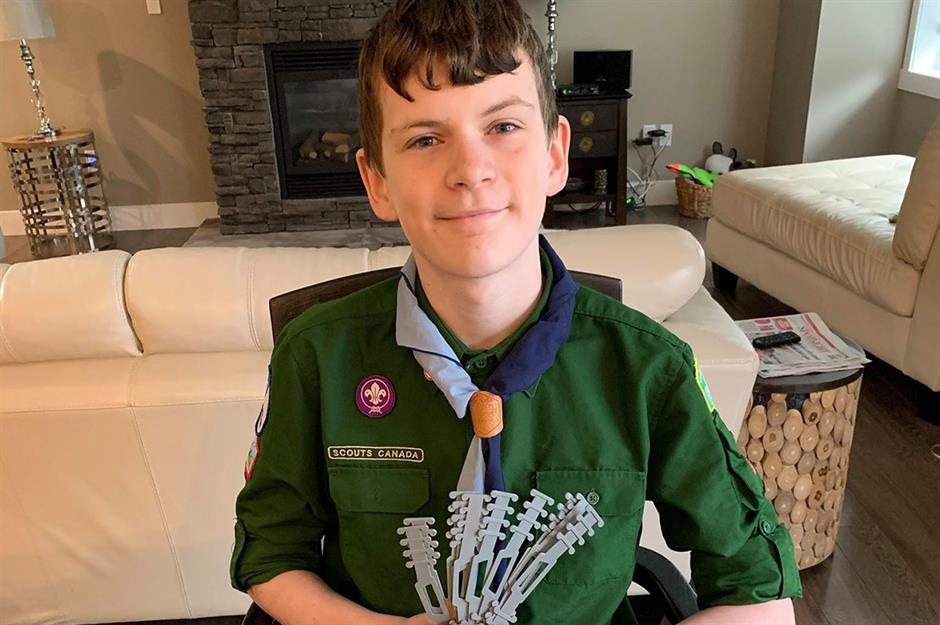
Sponsored Content
VentCore emergency ventilator
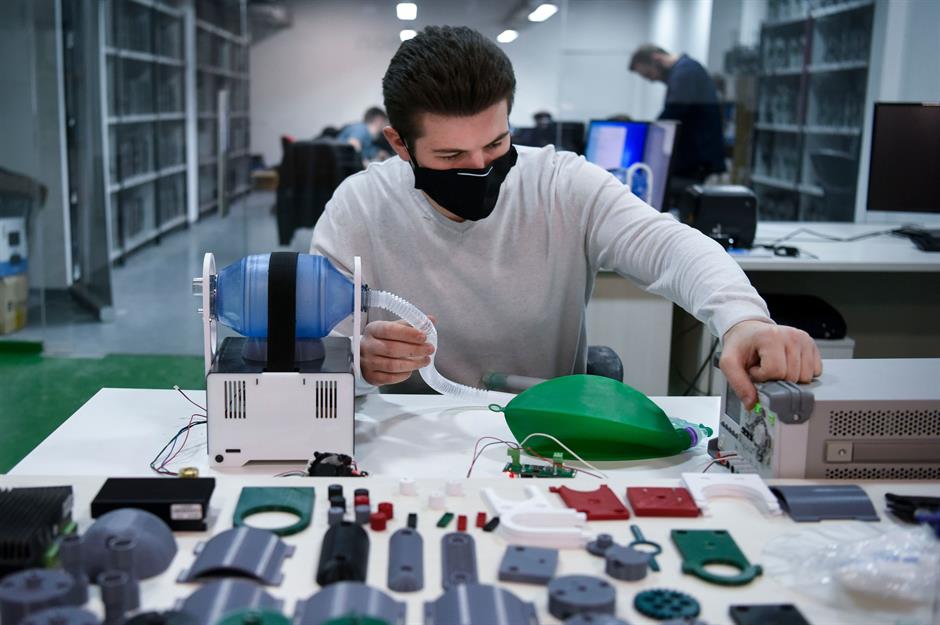
Xermosol UV germ killer

Emergency respiratory mask
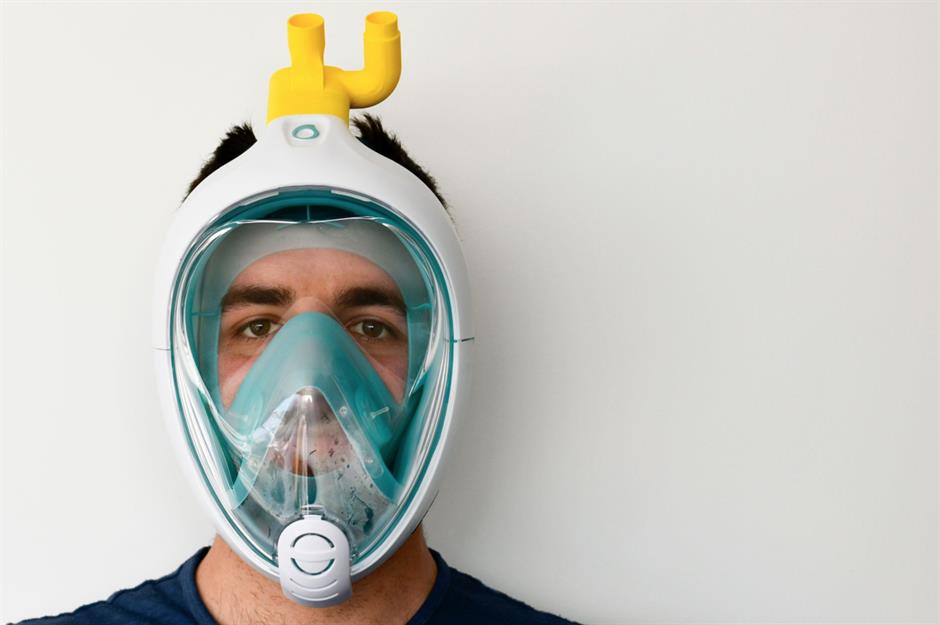
Italian engineers have started converting scuba masks into emergency ventilators thanks to an idea by former head physician of Gardone Valtrompia Hospital, Dr Renato Favero. Working with 3D printer business Isinnova, he helped develop a valve capable of converting a Decathlon Easybreath snorkeling mask into a functional C-PAP mask for oxygen therapy – which is used to treat patients severely ill with Covid-19. The adapter has been patented but will remain free to use.
Now read about the companies changing what they produce to fight coronavirus
Sponsored Content
Soapy hand-washing microstation
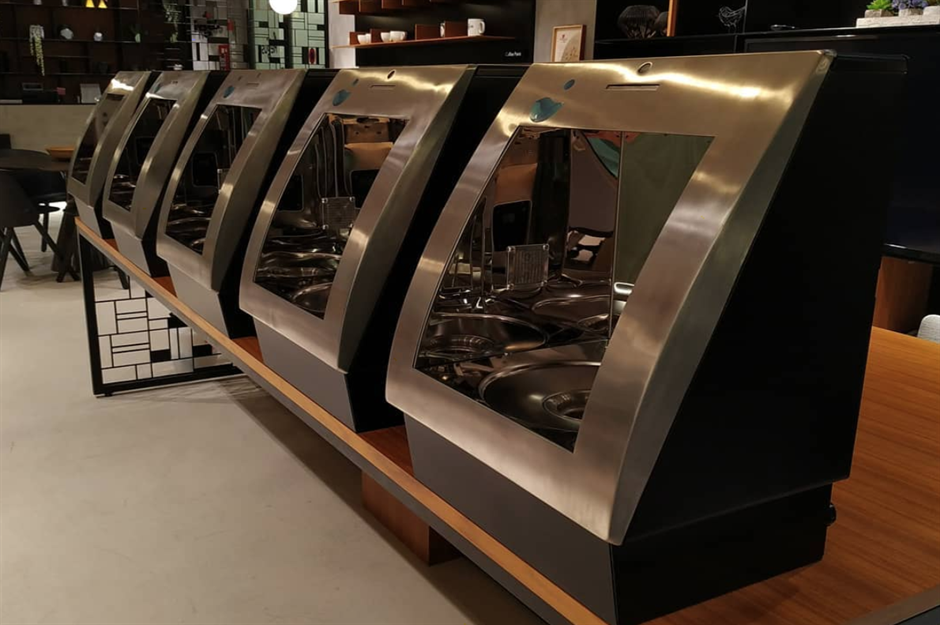
The Soapy hand-washing microstation claims to use technology powerful enough to kill the coronavirus. Inventor and Soapy CEO Max Simonovsky created the smart sink before the outbreak, but a recent partnership with another Israeli company has seen it become "100% effective" in killing viruses thanks to the inclusion of a plant-based substance which can kill tobamovirus, a disease which is more resistant than coronavirus. The unit also uses 95% less water than conventional devices.
Listening Archive
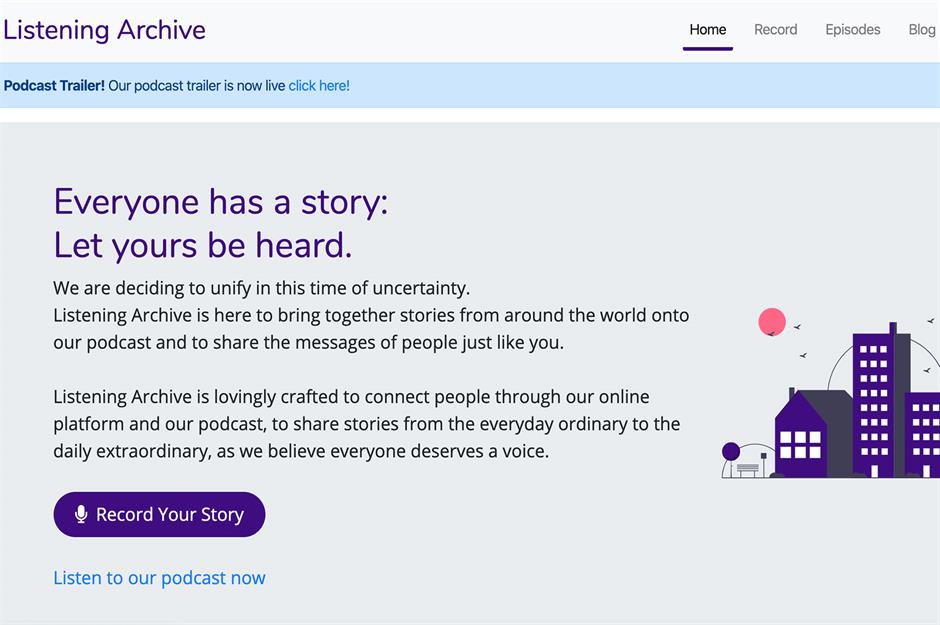
Ventilator made from car parts
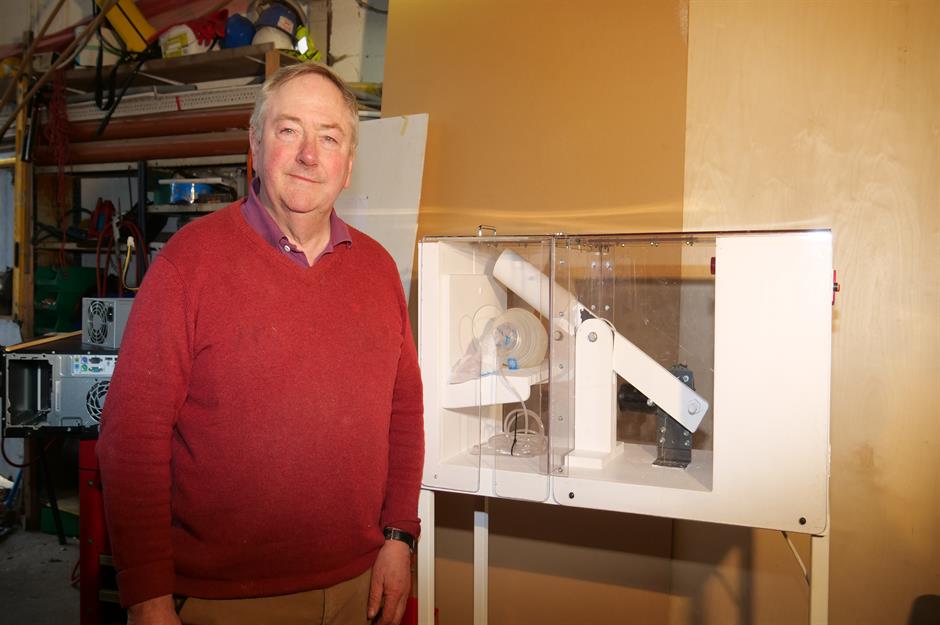
Sponsored Content
HK MASK project
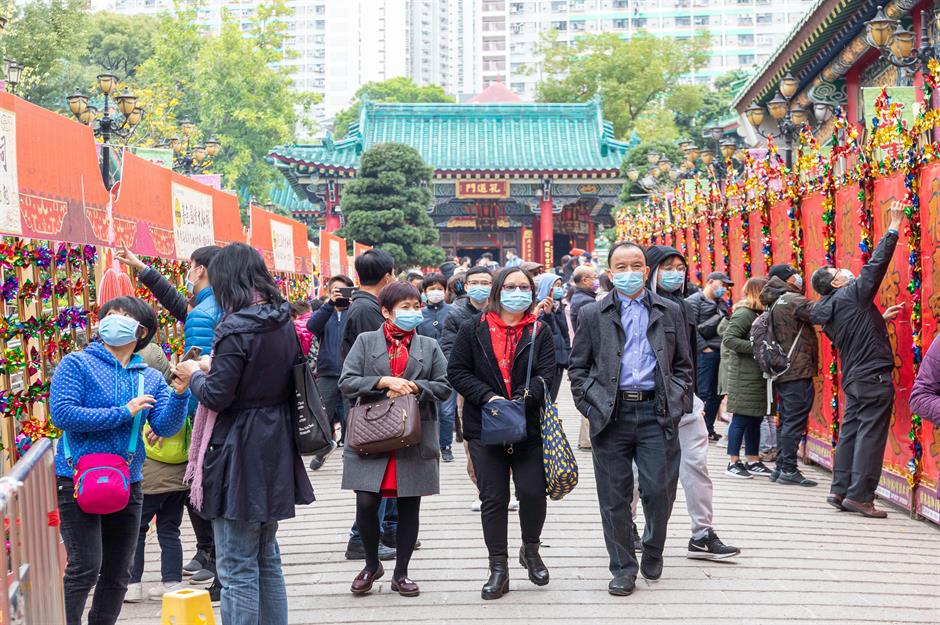
Former lecturer Dr Kenneth Kwong – who holds a PhD in chemistry – is the mastermind behind the HK MASK project, a reusable face mask initiative that started in February after coronavirus hit Hong Kong. Social enterprise Sew On Studio provided the fabric for the masks, while FOCUS Filtration and Engineering Limited supplied the replaceable filters. When asked whether he was qualified to make such devices, Dr Kwong responded: "I am no face mask expert but I know a lot of the experts."
DIY Covid face mask
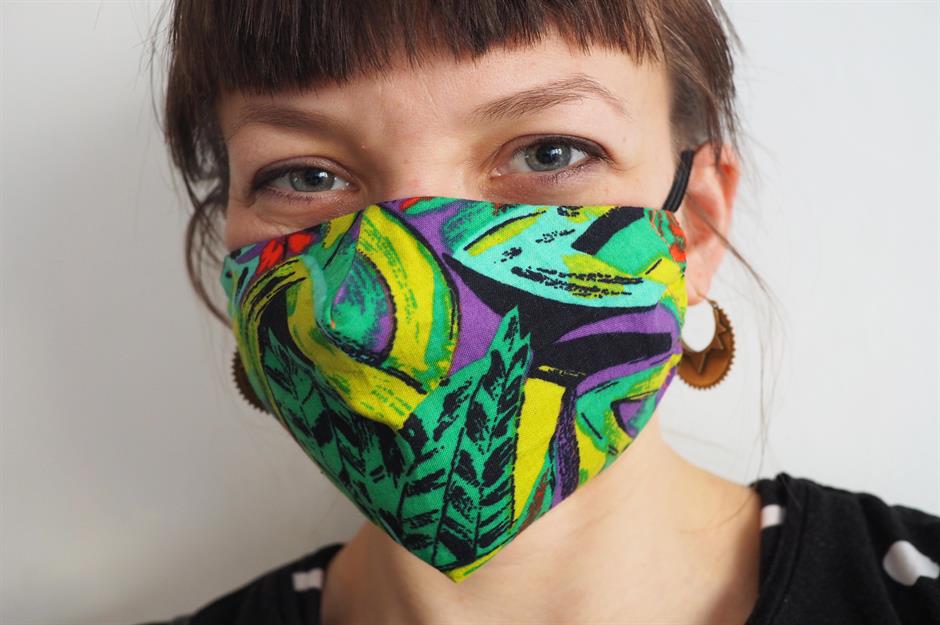
Stitched Up is a sustainable fashion co-operative based in Manchester, England, whose members have designed a DIY face mask to help reduce the risk of transmitting the coronavirus. The team worked on several different patterns but settled on a washable and reusable one, which can be sewn with a small pocket to insert a filter. The pattern is free to download on their website.
Immutouch
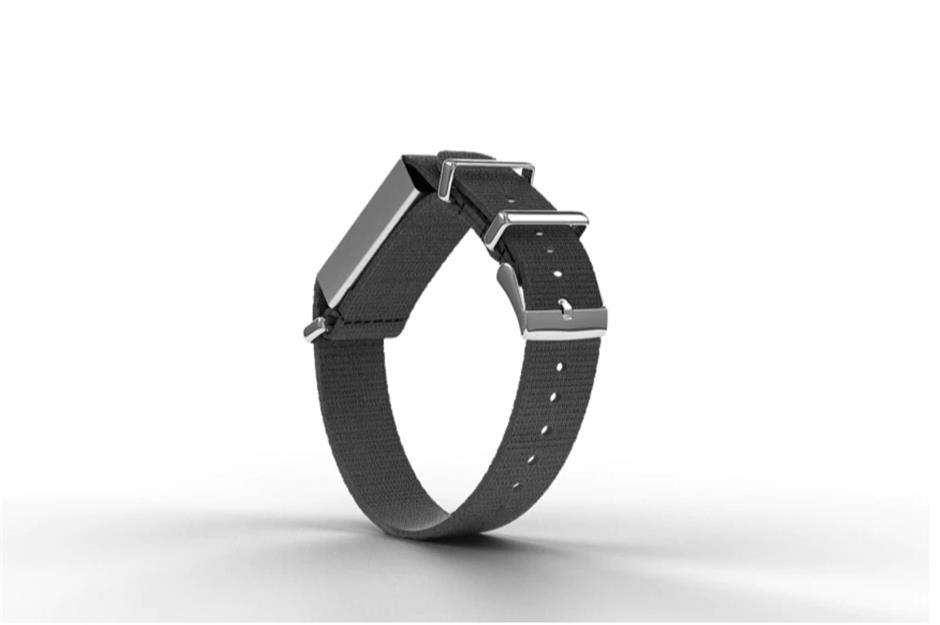
Immutouch is a $50 (£40) wearable device that buzzes every time you put your hand near your face in order to avoid infection. Designed by brothers Matthew Toles and Joseph Toles and their friend Justin Ith, of Seattle start-up Slightly Robot, the gadget was originally intended to reduce compulsive nail biting, hair pulling and skin scratching. But when the severity of the coronavirus pandemic became clear, they repurposed it to reduce face touching.
Sponsored Content
Hygienehook
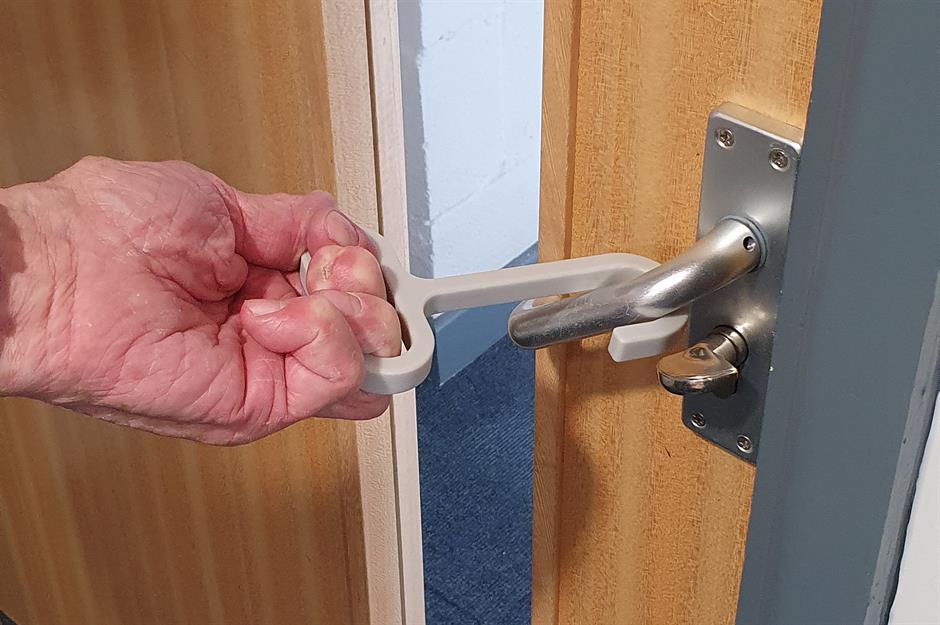
Face shields
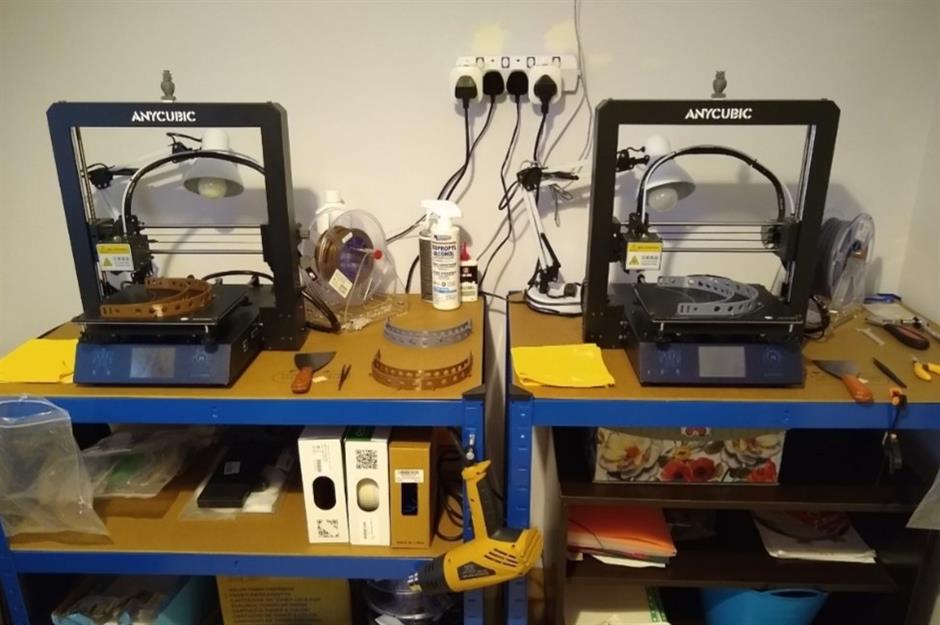
James Anderson from Oundle in Northamptonshire, England started making Covid-19 face shields at home after hearing that local health workers were short of PPE. Using two 3D printers, Anderson produced 30 a day until an online appeal came to the attention of nearby Oundle School, which loaned him its Ultimaker S3 3D printer. A fundraiser also raised more than $4,400 (£3,500) for equipment and materials, meaning Anderson could ramp up his production target to 100 items a day.
VentilAid ventilator
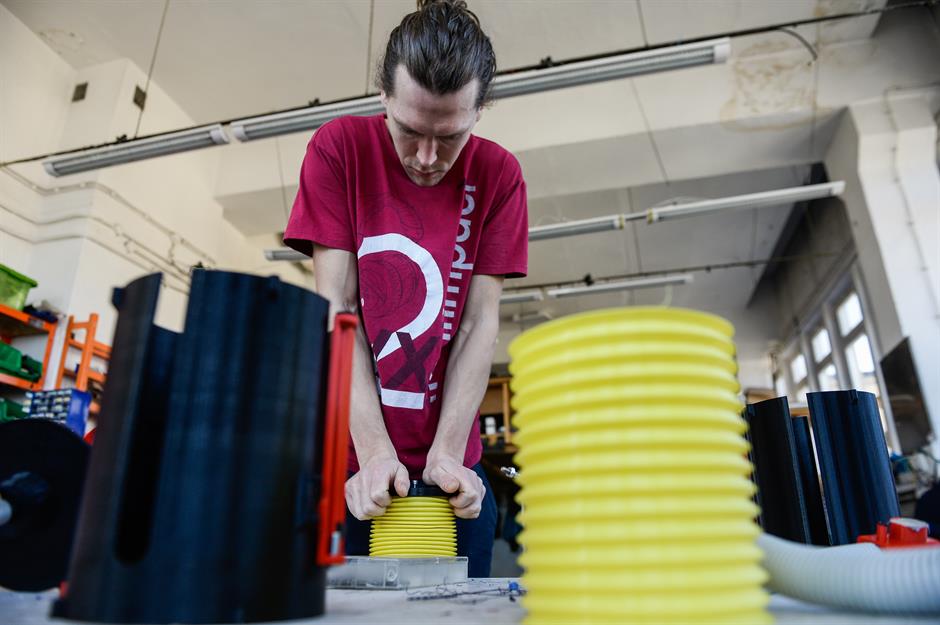
Sponsored Content
TrackTogether website

The Track Together website was built by three London twenty-somethings over one weekend as a way for people suffering signs of coronavirus to self-report their symptoms. Users enter their post code and symptoms, and within seconds are given a life display of the amount of known cases in their area. Developer Guy Nakamura, 28, told UK newspaper the Evening Standard that they were trying to improve transparency about the spread of the virus in people's neighbourhoods.
Hospital scrubs
When Gilbert Bain Hospital in the Shetland islands of Scotland raised concerns about the lack of clean scrubs – basic attire for medics – it was inundated with help. Volunteer sewers found patterns online and started stitching away using any material they can find, including children's duvets featuring characters such as Buzz Lightyear and Thomas the Tank Engine. NHS Shetland communications officer Carol Campbell told Wired: “I think we’re just going to be a bit more colourful this period."
EzySpit
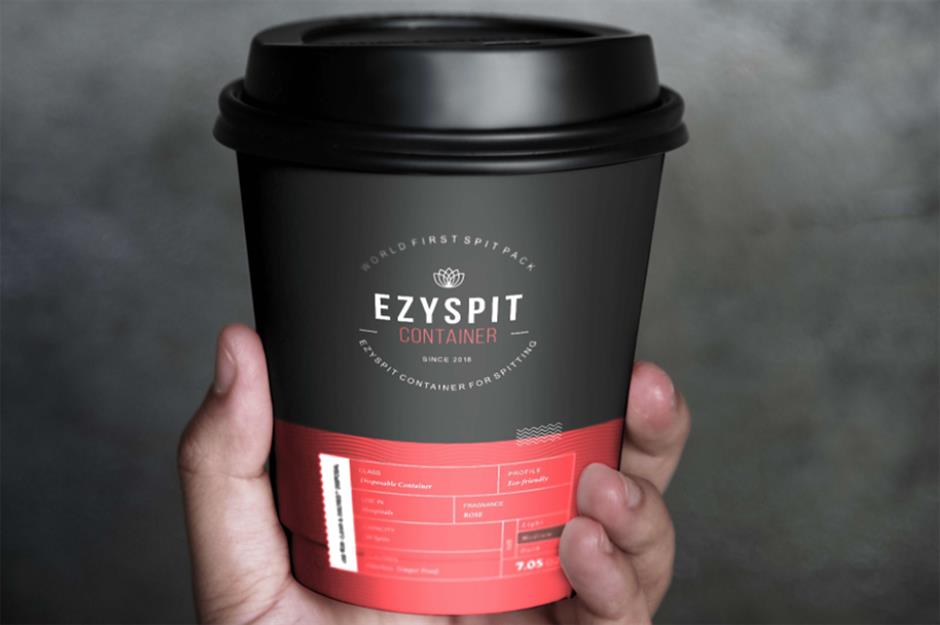
The EzySpit mobile spittoon created by three entrepreneurs from the Indian city of Nagpur helps prevent the spread of coronavirus through spitting, which is often linked to chewing tobacco. Prateek Malhotra, Ritu Malhotra and Pratik Harde's creation cleverly converts organic liquid waste into hybrid fertilisers, meaning the cup can then be disposed of as biodegradable waste. Designed before the crisis, demand for the devices has since soared by about 50%.
Read about the companies giving away their trade secrets to help fight coronavirus
Sponsored Content
LEGO hand sanitiser dispenser
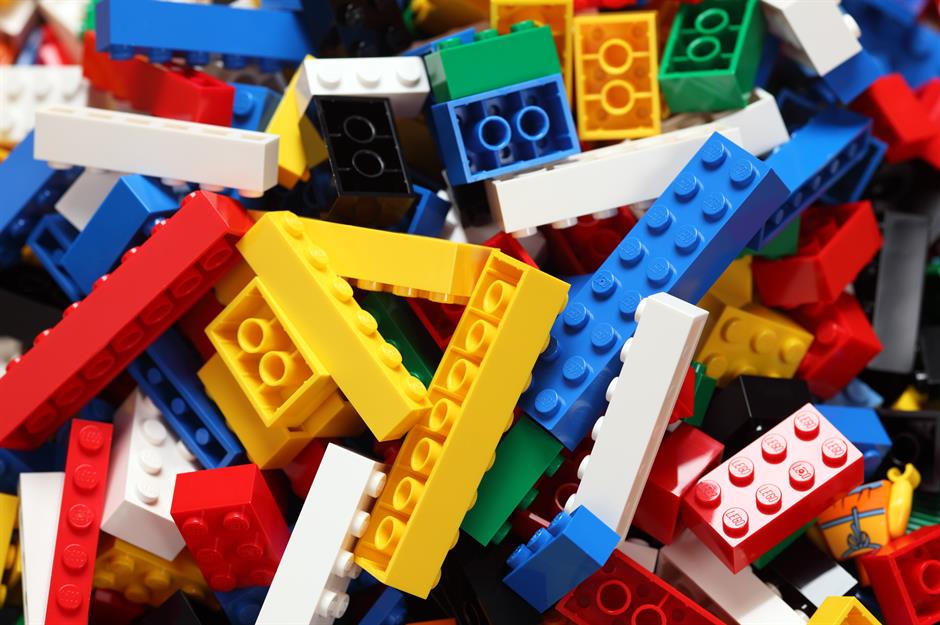
Baby safety pod
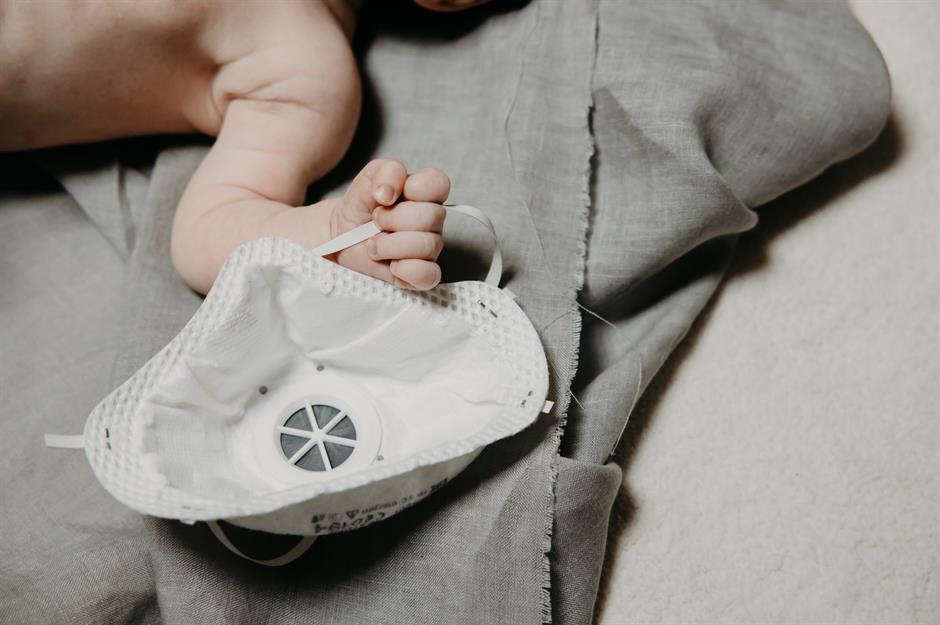
A 30-year-old father from Shanghai re-fashioned a cat carrier to make a baby safety pod – complete with air purification system – to try and keep his infant safe while outside during the ongoing coronavirus pandemic. Cao Junjie told Reuters it took him about a month to make the device, which also has a monitor displaying the level of carbon dioxide and temperature inside the pod. His wife Fang Lulu added that while she was unsure about the pod at first, she now feels pretty relieved.
Mentemia mental health app
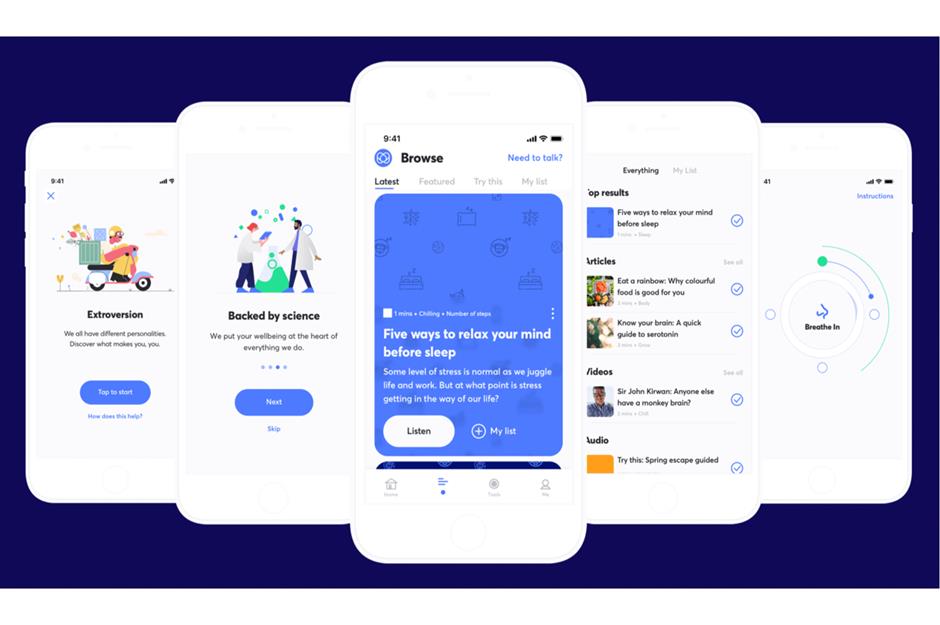
Sponsored Content
Door opening tool
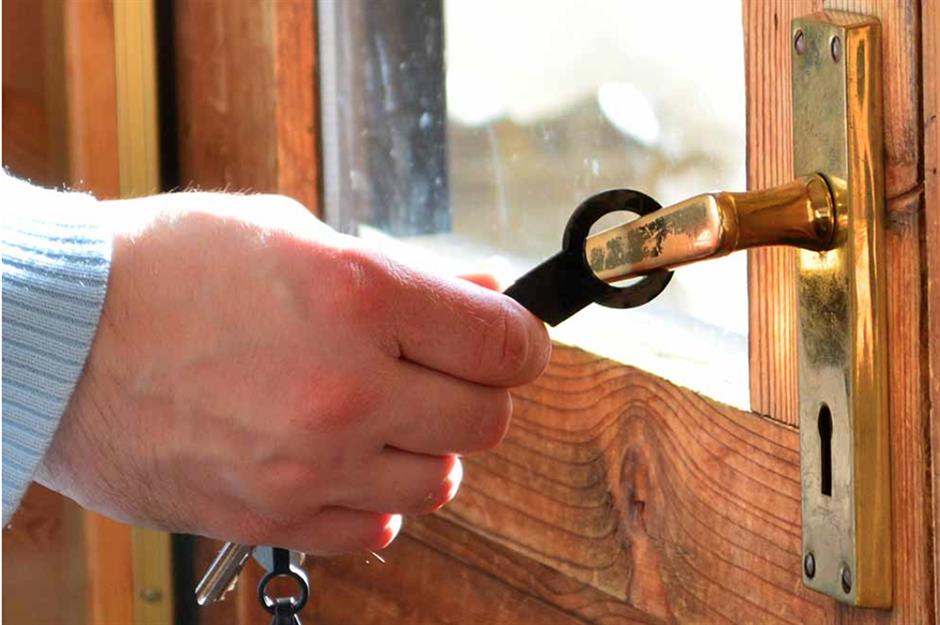
An online gift company based in Lincolnshire, England has started making a door opening tool that prevents the transfer of the coronavirus and other germs. GiftsOnline4U founder Asgar Dungarwalla told a local newspaper that he was always looking for new ideas that can help others and has created a gadget based on a design by the University of Sunderland’s Automotive and Manufacturing Advanced Practice. The device is available to buy on the website for $6 (£5).
Face visors
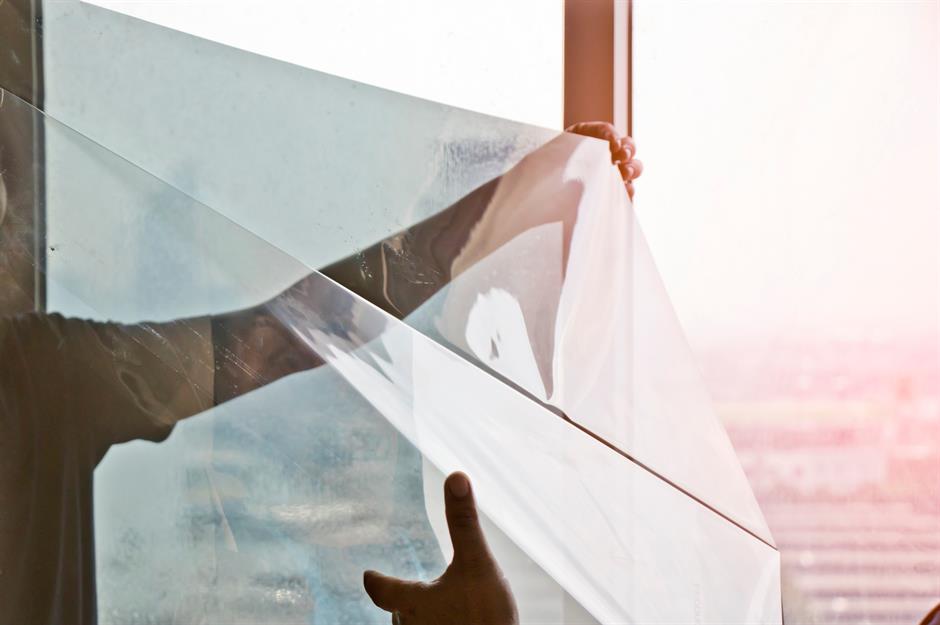
Smashguard Window Film owner Darren Botterill from Loughborough, England started making face visors for medical and health care staff after postponing work during the UK coronavirus lockdown. He and his wife Melissa decided to put their window film materials to good use by making protective shields and within 48 hours of posting on Facebook received orders for more than 30,000 units from across the country.
Coronavirus car
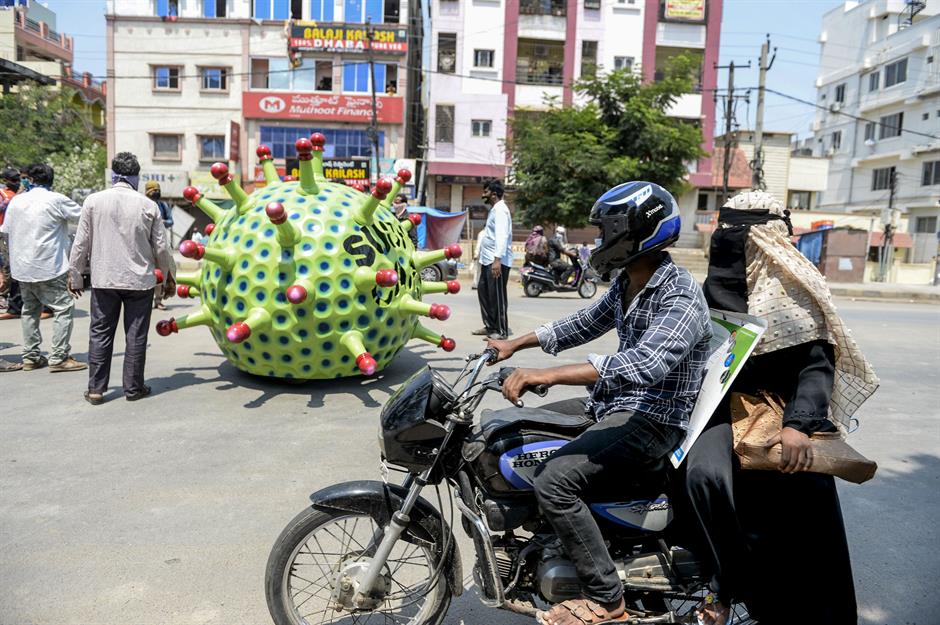
Indian inventor Sudhakar Yadav came up with a quirky idea to drive home the message about the dangers of the coronavirus pandemic. His small single-seat vehicle could be spotted on the streets of Hyderabad as he sought to remind his fellow citizens of the importance of staying home to reduce the virus's impact. The 67-year-old, who holds the Guinness World Record for designing the world's largest tricycle, told AFP that authorities had been supportive of his novel awareness campaign.
Sponsored Content
Do Not Touch Your Face
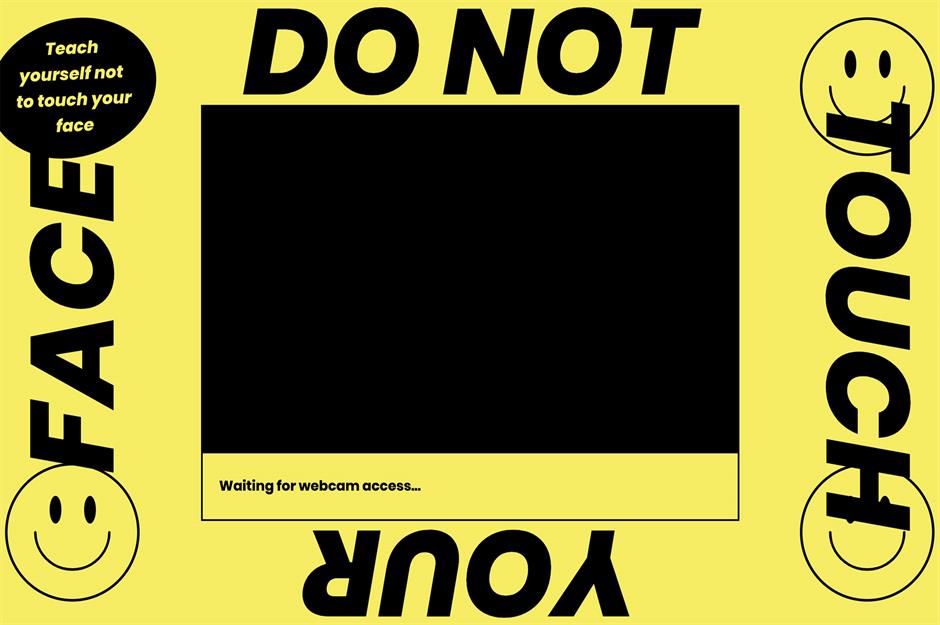
Donottouchyourface.com was created by three designers from design studio Delete Yourself in Portland, Oregon. Isaac Blankensmith, Brian Moore, and Mike Bodge got to work on the website after they noticed how much office workers touch their faces, which is one of the most common way to contract coronavirus. The free-to-access website asks users to let it access the webcam while they go out their regular business on their computer. The website then shouts "No!" whenever said individual moves to touch their eyes, nose or mouth.
Quarantine Together dating app
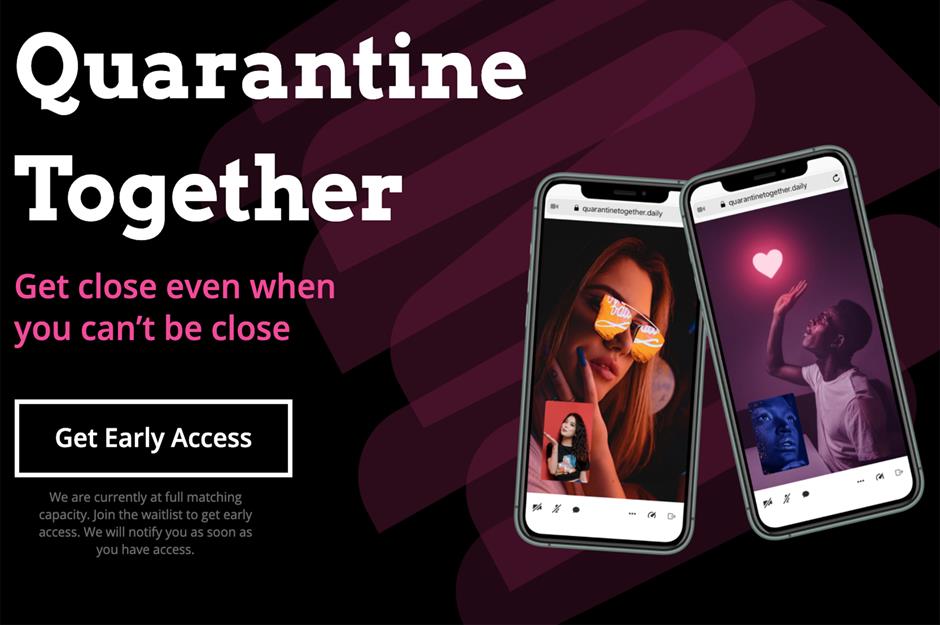
The Quarantine Together dating app was designed by California-based Daniel Ahmadizadeh and Christopher Smeder to help people find love, while also reminding them of World Health Organization hygiene guidance, during the Covid-19 pandemic. Each day at 6pm, users receive a text asking whether they've washed their hands or stayed at home. If they answer yes, they're matched with another user by text. After 15 minutes of chatting, they can then have a video call.
JalapeNO! app
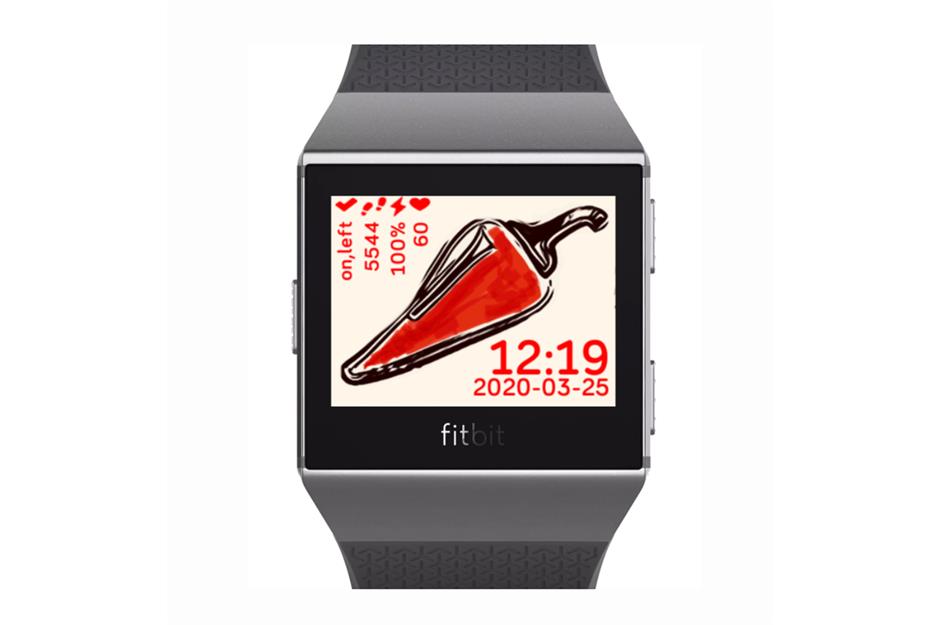
The JalapeNO! app was designed by University of Hawaii professor Kim Binsted to help FitBit fitness wearable users stop touching their face and therefore reduce the likelihood of them contracting coronavirus. The app vibrates anytime your hand comes near your face, and it takes its name from jalapeno chillis, which you would naturally want to keep away from your eyes, nose and mouth. FitBit Ionic and Versa users can download the $0.99 (£0.79) app from the Fitbit mobile app.
Sponsored Content
Body shield
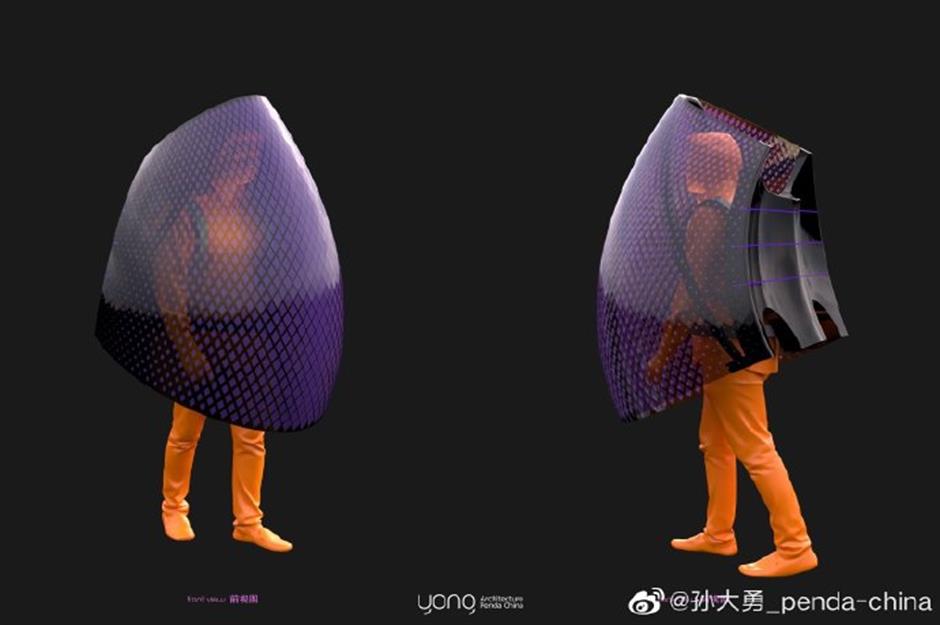
FaceID compatible masks
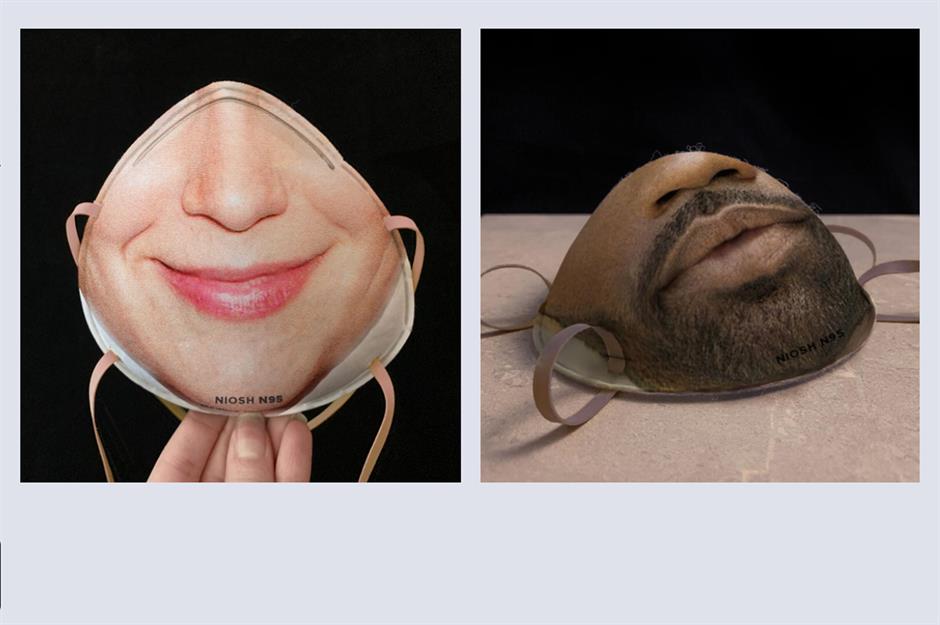
Protective masks that work with facial recognition software are the brainchild of San Francisco-based designer Danielle Baskin. Face masks can pose a problem for smartphone users who unlock their devices by looking at them. So, Baskin addressed the issue by coming up with the idea of N95 standard masks printed with an image of the part of the user's face that's covered. The mask's elastic band can also be matched to skin tone, the company's website claims.
Now read about the companies leading the fight against coronavirus
Comments
Be the first to comment
Do you want to comment on this article? You need to be signed in for this feature